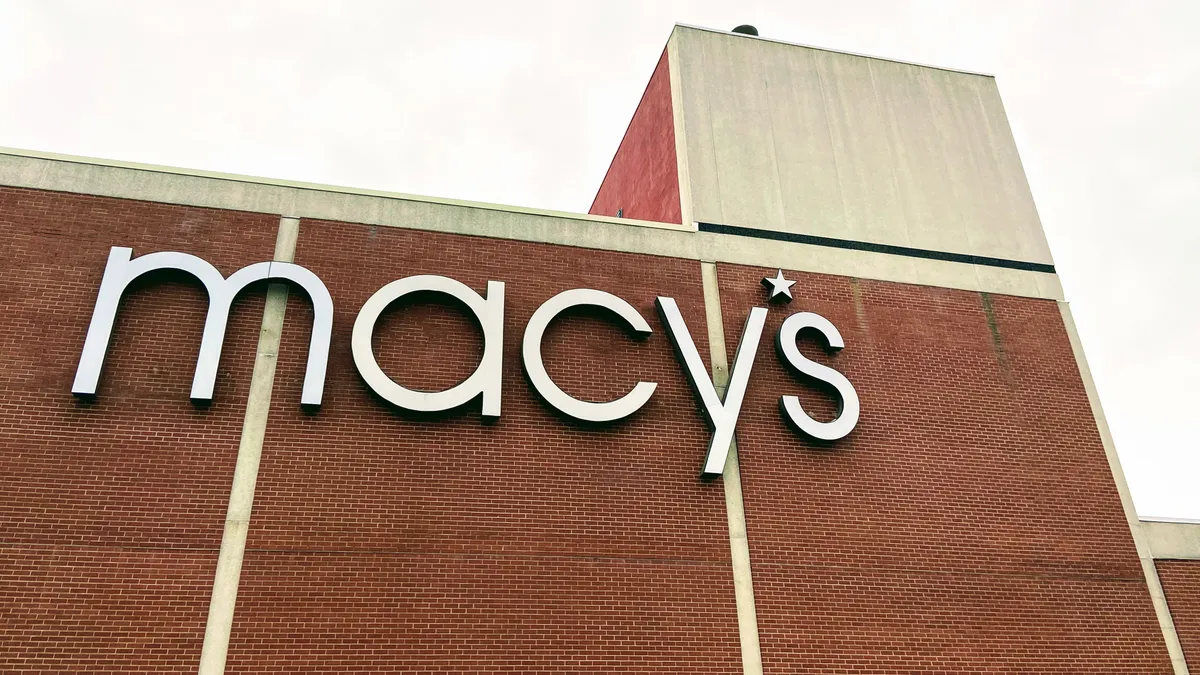Driven in part by a new, even more contagious omicron variant, the COVID-19 pandemic carried on into the new year, fueling ongoing concerns about health and the economy.
"The COVID-19 omicron variant will bring uncertainty to the economy in 2022 and could contribute to inflation, but is unlikely to cause widespread shutdowns or slowdowns," according to a report Wednesday from National Retail Federation Chief Economist Jack Kleinhenz.
In recent days, however, two major retailers, Walmart and Macy's, said they have gone so far as to shift store operations in response to the pandemic's surge.
At Macy's during the rest of the month, due to the rise in COVID-19 cases, all stores will only be open from 11 a.m. to 8 p.m. Monday through Thursday, with store hours unchanged the rest of the week, the company said by email. Store employees will work "their normal allocated hours," a Macy's spokesperson said, adding that stores will encourage CDC-recommended protocols like mask wearing and social distancing. "The health and safety of our customers and colleagues remain our top priority."
Walmart is taking a more geographically specific approach, temporarily closing Walmart and Sam's Club stores for cleaning, as it has "since shortly after the pandemic's beginning in 2020," according to a company spokesperson.
"This is a proactive measure, based on market-specific data, and is intended to present a safe in-store environment for our associates and customers," the spokesperson said.
The temporary closures typically last a day and a half and the program will remain in place for as long as it's needed, the spokesperson said. "As for any outbreaks, our facilities tend to reflect the communities we serve. Therefore, a rise in positive cases among associates would likely be consistent with any rise in case counts within the surrounding communities."
The moves follow what appears to have been a robust holiday sales season despite retailers' difficulty in hiring even after dangling extra incentives. Closing stores and shortening hours could be one way of dealing with that labor shortage, among other challenges, according to retail consultant Brian Kelly. While closures at Apple stores likely are directly related to a disease outbreak, the operational adjustments at Macy's at Walmart could reflect a shortage of workers or a spike in shoplifting at those locations, he said by phone.
"I think there's a variety of issues that are causing retailers to adjust," Kelly also said. "And I think in part it's traffic volumes, which is certainly exacerbated by COVID. And then in some cases, it's going to be retailers proactively trimming cost to deliver the fourth quarter, and they're all in the middle of that right now."
Macy's didn't immediately respond to questions regarding a potential connection between its shortened hours and staffing needs. "Our temp closure program has been in place for almost two years, and there is no connection between those closures and staffing," a Walmart spokesperson said.
In any case, the labor shortage itself is likely connected to the pandemic, as workers avoid situations where exposure is more likely, especially in lower-paying jobs like retail, experts say. Boosting vaccination rates would reduce the likelihood that further variants proliferate and increase the chance of curtailing the pandemic, according to public health experts.
Those experts also say a vaccine mandate is the best way to achieve the necessary level of immunization. NRF successfully blocked the Biden administration's vaccine mandate, which would require large companies to document their employees' COVID-19 immunization status or test them weekly if they choose not to be vaccinated. The Supreme Court will take up the issue this week.
That stance doesn't necessarily reflect the entire industry's approach. The Retail Industry Leaders Association didn't join the NRF in fighting the mandate, choosing instead to prepare members to comply. And Macy's on Tuesday began the process of documenting the vaccine status of all U.S. employees in order to meet the Biden requirements, according to The New York Times. Macy's confirmed by email that it's working to meet the new mandate.
Closing stores, for days or hours at a time, doesn't necessarily mean that many lost sales. In its statement, Macy's touted its e-commerce, including its curbside pickup options. And on Wednesday, Walmart announced that it's expanding home delivery in the U.S. from 6 million households to 30 million by the end of the year.
"COVID is really impacting everything, wherever there's human-to-human contact," Kelly said. "If you have no traffic, and the majority of your transactions are coming online, then there's no reason to have a store up and have salespeople on the floor when there's no one in the store. It's just prudent."
























